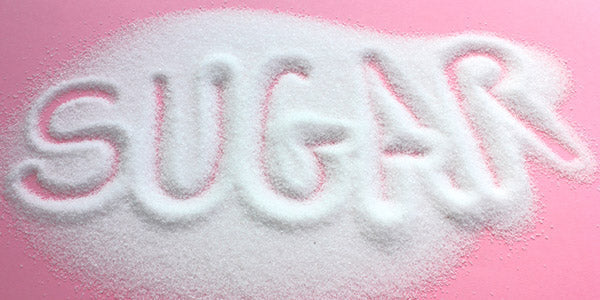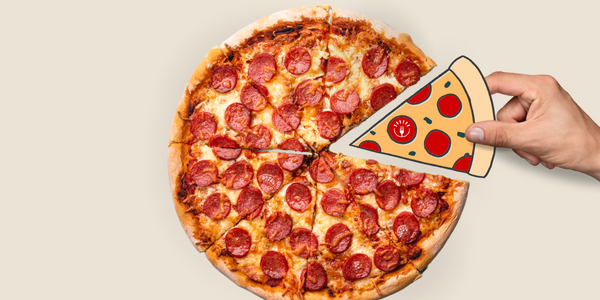
Today, sugar, or some form of sugar, is in virtually everything. For diabetics, sugar is their worst enemy. For dieters, it's a sure way to fall off the wagon.
FDA-Approved Artificial Sweeteners
There are five Federal Drug Administration (FDA)-approved artificial sweeteners floating around in products found on grocery store shelves that may be a better option for dieters and diabetics. Each sweetener has a different chemical makeup.
Sucralose (Splenda)
Also known as table sugar with 16 calories per teaspoon. This sugar is found naturally in fruit and added to baked goods, jams, marinades and salad dressings. Sucrose was approved by the FDA in 1999 and offers energy, but with no nutritional benefits.
Acesulfame potassium (Sunett, Sweet One)
Often found in soft drinks, gelatins, chewing gum and frozen desserts, this artificial sweetener was approved by the FDA in 1988. Unfortunately, however, the body cannot break it down so consumption should be monitored.
Aspartame (Equal, Nutrasweet)
Commonly found in drinks, gum, yogurt and cough drops, this is perhaps the most well-known artificial sweetener out there. Approved by the FDA in 1981, 70% of all aspartame is used in diet sodas. Some people may have a sensitivity to this artificial sugar and may experience headaches, dizziness, mood changes or skin reactions. This should NOT be used for baking.
Neotame
Approved by the FDA in 2002, neotame is often found in some drinks, dairy products, frozen desserts, puddings and fruit juices. It is a chemical derivative of aspartame. It is also safe for diabetics because it doesn't affect insulin levels.
Saccharin (SugarTwin, Sweet'N Low)
Approved in 1974, saccharin is found in drinks, canned goods and candy.
Saccharin was once listed by the World Health Organization (WHO) as a possible carcinogen in humans after a study showed a risk of bladder cancer in rats. It has since been removed after other studies showed no evidence to back up the theory.
What Role Does Sugar Play in Our Diet?
We all have a sweet tooth, but that's no surprise because we were born with a natural preference for sweets. Too much sugar can lead to too many trips to the dentist, a spike in weight gain or diabetes (often resulting from weight gain).
In 2011, the Huffington Post reported that the average American drinks 45 gallons of soda a year and 28 gallons of water.
If you're consuming too many of those delicious, sugary drinks - try cutting back and also pay attention to your food labels because sugar can be sneaky. It likes to go by many other names such as:
• Corn sweetener
• Corn syrup
• Dextrose
• Fructose
• Fruit-juice concentrate
• High-fructose corn syrup
• Invert sugar
• Lactose
• Maltose
• Malt syrup
• Syrup
The American Diabetes Association found most artificial sweeteners to be appropriate for people with diabetes. They may also help control calorie intake.
For years it was felt that sugar substitutes do not affect blood sugar levels or the glycemic response within the body. Recent research shows, however, that artificial sweeteners may indeed stimulate insulin and glucose levels.
What happens is the body tastes something sweet and hormones are released to deal with the sugar expected. If artificial sweeteners are consumed in the absence of food - the way they are when people drink diet soda all day and don't eat any food until dinner - their hormones are released and the body gets confused. Higher insulin levels result. Many people try the diet soda and one meal a day diet, only to find they are gaining weight. As insulin, the hormone released to metabolize sugar, is often a fat stage hormone.
The use of an artificial sweetener in something like yogurt or a protein bar should not produce this level of altered hormone secretion as the artificial sweetener is in a food that contains protein, fat and some carbohydrates.
"As information about artificial sweeteners is evolving, the take home message is use less overall and avoid using artificial sweeteners in the absence of food," said Dr. Caroline J. Cederquist, M.D., a founder of bistroMD.
Natural Sweeteners vs. Artificial Sweeteners
Natural sweeteners are safer, right? They're natural so they have to be. Wrong. Products such as fruit juices and nectars, molasses, honey and maple syrup frequently undergo processing and refining - making them not so natural anymore. The vitamin and mineral content of processed table sugar doesn't differ significantly from these substitutes either.
Products such as Stevia, also marketed as natural, are processed and refined before being sold to the public as well.
Also, have you ever wondered why sugar substitutes taste sweeter than your average table sugar? This is because your body processes artificial sugars differently.
Our body's sugar receptors are not very sensitive and they only detect sugar in large quantities. Artificial sugars trigger the receptor with far smaller quantities than natural sugar - that's why artificial sugars taste sweeter!
How much is too much?
The FDA recommends consuming no more than 50 milligrams of aspartame per kilogram of body weight each day, but for a 175-pound man, that would amount to 22 cans of diet soda and assuming you use two packets of artificial sugar in your coffee, you would need to drink 116 cups of coffee to hit the mark in this example. For a 175-pound woman, that would amount to 79 cups of coffee with two packets of artificial sugars.
Remember in 2011, the Huffington Post reported that the average American drinks 45 gallons of soda a year and 28 gallons of water? The average American should not be consuming that much soda. If you want to be healthy, cut out the sugary drinks. That way you won't have to worry about what you're putting into your body. If you eat clean, you'll not only feel better; but your body will thank you by having more energy throughout the day - letting you get back to what you love!
If you consume artificial sweeteners because you're diabetic or you're trying to lose weight, that's fine too - just don't substitute diet soda for food. Consume real, healthy food throughout the day and you'll feel fantastic!
However, if you want to avoid sugar substitutes and other artificial products, shop healthy and eat clean.
If you're interested in weight loss meals that not only taste delicious, but also help you lose weight - we have a men and a women's program with the option to receive five-or-seven-days' worth of healthy meals delivered to your door.
The seven day option comes with the My Night feature, your one night a just be you and eat whatever makes you feel content.
Feel free to browse our site and our Health Library for more information and when you're ready to make your decision, we'll be here to answer any questions you may have at 1-866-401-3438.







